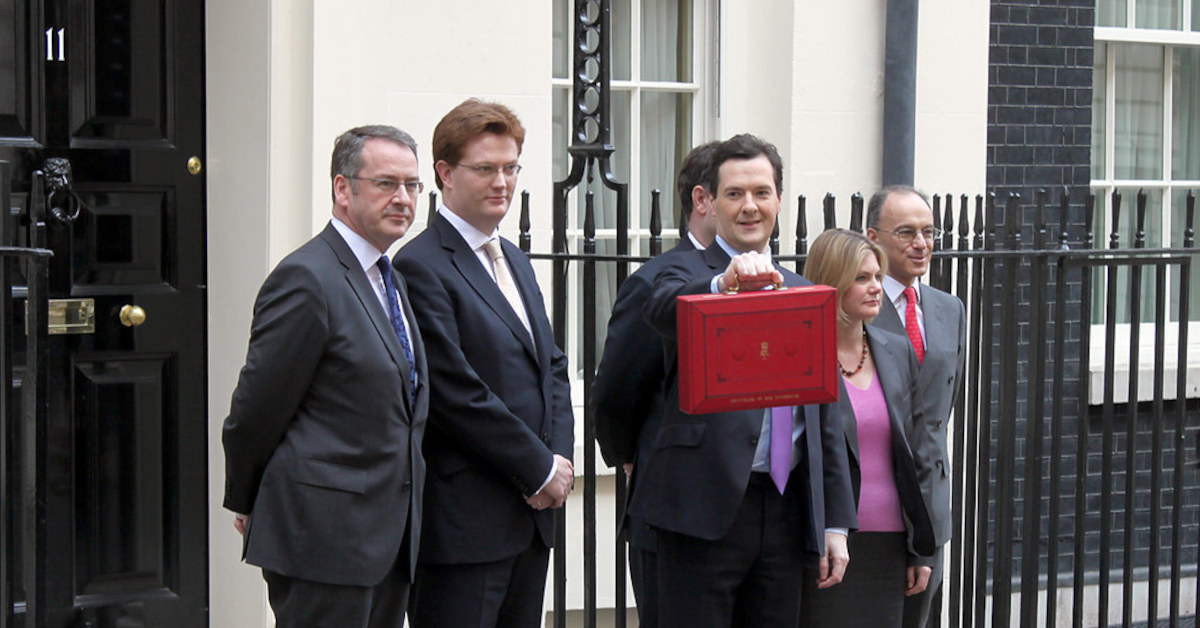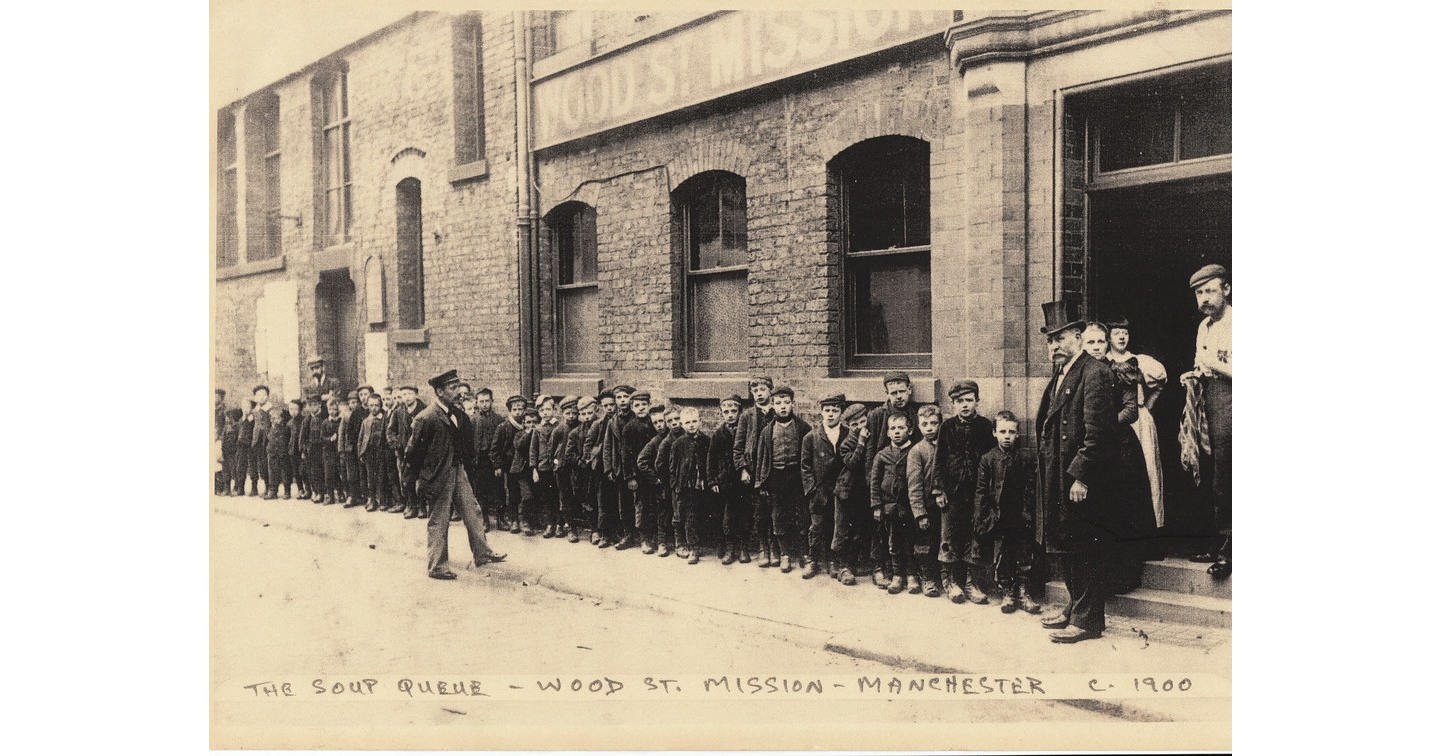Let’s start with the positive
George Osborne signalled two themes in his budget.
- The need for a Budget for Growth
- The need for a Balanced Economy (North v South, Manufactoring v Financial/Service Sector)
He’s right that these are the immediate requirements. We won’t be able to shift the debt unless we deliver real growth in the economy.
The UK economy is failing to re-emerge out of the trough created by the wanton indulgences of the global banking sector. This is because we allowed Nigel Lawson, Maggie Thatcher, Norman Lamont, John Major and yes, Gordon Brown, to put the short term flattery and fawning from the cretins in the City of London ahead of the fact that no nation can thrive if it doesn’t make anything.
Where’s our aircraft industry, our car-makers, our ship-builders, camera-makers, tram-makers? The lessons from our current plight are not new, we’ve known for centuries that reliance on a couple of sectors will catch up with you in the end. The fact that the banking crisis is a global phenomenon shouldn’t blinker us to the fact that countries with strong diverse economies are going to pull clear out of this quicker than nations made up of supermarkets, bankers and social workers. Look at how quickly Germany is re-emerging..
So, George Osborne is right to identify growth in a balanced economy is imperative but he doesn’t do enough.
- 1p cut in fuel duty and postponement of April’s Fuel escalator – I agree with this. There’s an argument that the VAT increase should not be applied to fuel. I don’t buy George Osborne’s explanation that this would take 6 years to get through EU regulations. Given we’re baling out Portugal, given we are in a position of negotiating strength, it could have been sorted in days. Osborne is clutching at straws with that one, but in any event, I’m not sure that we should be removing the various levies on fuel. The 1p cut is probably right at this time. But the reality is the fuel price has to increase, we’ve got to reduce our over-reliance on the car for all sorts of reasons. Politicians are not coming clean about this. Both the Conservatives and Labour Front benches are allowing the price at the pump to increase whilst positioning themselves as the friend of the motorist. It’s unpopular but if we’re to compete, we have to reduce unnecessary fuel use; it’s a scarce commodity with a price to match and it’s about time we accepted that..
- Corporation Tax reduced by 1p – I agree with this – We do have to encourage business. It’s not going to do much on its own. I’d really like to see an end to employers national insurance. We should not be taxing jobs. I’m not suggesting that companies and employers should not be contributing to our shared responsibilites (defence, health service etc.) but I’d argue that we should be focussing on the capital in the company rather than the numbers in its labour-force. The labour-intensive industries should not be contributing more than those with one man and a nuclear reactor. We want those jobs.
And that’s about it for growth. He’s made it easier for developers with a presumption in favour of planning applications. A fact lost on Conservative Councillor Michael Cornes at last night’s presentation from the Breathe Clean Air Group. Just as he was claiming that localism will make it easier for people to oppose developments, his Chancellor was pulling the rug from under his feet and saying developers can pretty much build what they like.
He’s also given the go-ahead for the northern hub linking Manchester Victoria and Piccadilly. As this potentially could improve the regularity of trains on our line in Gorse Hill, we have to welcome it.
But there’s the rub. At a time of recession we should be stimulating the economy through more investment. The northern hub is welcome but it’ll take too long to get started. The investments that would make an immediate difference are the Building Schools for the Future projects, Sheffield Forgemasters, Affordable House Building,
The supply of land needs to increase. Too much of it is held as a speculative hedge-fund by investors and the aristocracy. We tax jobs and the poor but land gets EU grants. And before Tories start saying Mike Cordingley would like to tax your gardens, I’m talking hectares not patios. There would be an argument over legitimate farming but I’m sure a sophisticated land tax could be constructed. The important thing is that we are able to build the houses, schools and hospitals needed by our people, stimulate our economy and at the same time ensure the most priviliged in our country share the burden that’s being placed by the Tories on our poorest and most vulnerable.
What you do in a recession has implications for years. It provides opportunities as well as challenges. Osborne has set all his focus on 2015, the next General Election. There’s a possibility that we might just might be reducing the deficit then (and the Tories might just reap the benefit). The problem is that we will still be relying on the same bogeymen, the bankers that got us into this mess in the first place and the economy will be as unbalanced as ever and far further behind our competitors than it is now.
“Chancellor and Treasury Ministers outside No.11 Downing Street on Budget Day” by HM Treasury, CC BY-NC-ND 2.0
Chancellor of the Exchequer George Osborne standing with his Budget Box alongside Treasury ministers (left – right: Mark Hoban, Danny Alexander, David Gauke, Justine Greening, Lord Sassoon) before proceeding to Parliament for the 2011 Budget statement. 23 March 2011.





